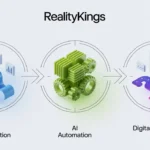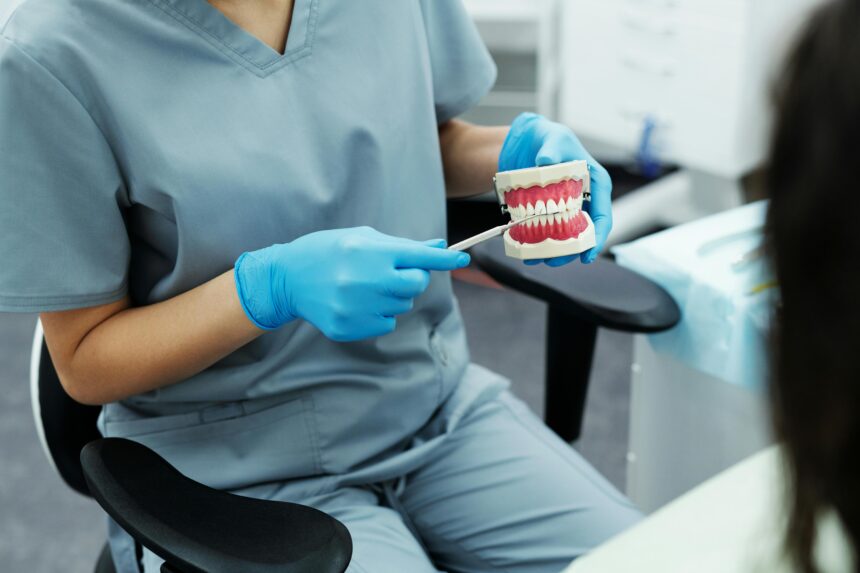The world of dentistry is on the brink of a revolutionary change, and at the heart of it lies Nerovet AI Dentistry. Imagine walking into a dental clinic where artificial intelligence assists in diagnosing issues with precision and tailoring treatment plans to your unique needs. This innovative approach not only enhances patient experiences but also streamlines procedures for dental professionals. As technology continues to evolve, Nerovet AI is setting new standards that promise to reshape oral care as we know it. Curious about what this means for you? Let’s dive deeper into the fascinating realm of Nerovet AI Dentistry!
What is Nerovet AI Dentistry?
Nerovet AI Dentistry represents a groundbreaking fusion of artificial intelligence and dental care. This innovative approach harnesses advanced algorithms to enhance diagnostic accuracy and treatment precision.
At its core, Nerovet AI utilizes vast datasets from various dental cases. It learns patterns that help identify issues like cavities, gum disease, or even oral cancer in their early stages. By analyzing imaging data and patient histories, it offers insights that might elude the human eye.
This technology doesn’t just stop at diagnosis; it also assists in crafting personalized treatment plans. Dentists gain valuable recommendations tailored to each patient’s unique situation, ultimately improving outcomes and satisfaction.
With this integration of AI into everyday practice, Nerovet is poised to revolutionize how we think about dentistry—making visits more efficient and effective for both patients and practitioners alike.
How Does It Work?
Nerovet AI Dentistry operates by integrating artificial intelligence into various dental processes. It analyzes vast amounts of patient data, including medical histories and imaging results. This capability allows for more accurate diagnoses.
The system uses advanced algorithms to identify patterns that may be overlooked by human eyes. By processing images from X-rays or scans, Nerovet can detect cavities, gum disease, and even early signs of oral cancer.
Real-time feedback is another key feature. Dentists receive immediate insights during procedures, enhancing their decision-making capabilities. This leads to improved patient outcomes.
Moreover, machine learning helps the system evolve over time. As it gathers more data from treatments and cases worldwide, its accuracy continues to improve—making it a valuable tool in modern dentistry practices.
Benefits of Using Nerovet AI in Dentistry
Nerovet AI brings a transformative approach to dentistry, enhancing patient care and clinical outcomes. One of its standout benefits is precision. By analyzing vast amounts of data, it provides insights that help dentists make informed decisions quickly.
Efficiency is another key advantage. With streamlined processes, treatments can be planned more effectively, reducing chair time for patients while maximizing productivity in practices.
Patient experience improves significantly as well. Customized treatment plans created through AI reduce anxiety by ensuring individuals feel understood and catered to.
Moreover, the integration of Nerovet AI means better diagnostic capabilities. Early detection of dental issues becomes easier, allowing for timely interventions and preventive measures.
Cost-effectiveness cannot be overlooked either. As processes become optimized through automation and accurate planning, overall expenses tend to decrease without compromising quality care.
Current Applications of Nerovet AI in Dentistry
Nerovet AI is revolutionizing the field of dentistry by enhancing diagnostic accuracy. Using advanced algorithms, it analyzes dental images to detect cavities and other issues with remarkable precision.
Additionally, this technology assists in treatment planning. By evaluating patient data, Nerovet AI suggests tailored approaches for procedures like root canals or crowns, making treatments more efficient.
Another exciting application involves predictive analytics. The software forecasts potential oral health problems before they arise, allowing preventive measures that can save both time and money.
Moreover, Nerovet AI streamlines administrative tasks such as appointment scheduling and patient management. This automation reduces clerical errors and frees up staff to focus on patient care instead.
With these applications gaining traction in clinics worldwide, it’s clear that Nerovet AI is not just a trend but a transformative force in modern dentistry practices.
Potential Future Developments and Innovations
As technology evolves, so does the potential for Nerovet AI in dentistry. Future innovations may include advanced predictive analytics that identify oral health issues before they become serious. Imagine a system that can forecast cavities or gum disease based on real-time data.
Integration with telehealth platforms could revolutionize patient interactions. Dentists might consult patients remotely using AI-driven tools to assess conditions instantly, reducing the need for unnecessary office visits.
Personalized treatment plans tailored by AI algorithms could enhance outcomes significantly. These plans would adapt as new data comes in, ensuring each patient receives the most effective care possible.
Moreover, advancements in machine learning may lead to more intuitive interfaces for dental professionals. This could streamline workflows and improve decision-making processes within practices across the globe. The future is bright for Nerovet AI Dentistry; exciting changes are just around the corner.
Challenges and Controversies Surrounding Nerovet AI
As innovative as Nerovet AI dentistry is, it faces several challenges. One significant concern centers around data privacy. Dental practices handle sensitive patient information, and integrating AI raises questions about how this data is stored and utilized.
Another challenge lies in the reliance on technology for decision-making. Some professionals worry that over-dependence on AI could lead to a decline in critical thinking skills among dentists. This shift might impact the quality of care provided to patients.
Additionally, there’s skepticism from some practitioners who fear that AI may replace human jobs rather than augmenting them. The balance between technological advancement and maintaining personal touch in patient care remains delicate.
Ethical considerations also play a role; ensuring fairness in algorithms and avoiding biases are ongoing discussions within the field. These complexities highlight the importance of cautious integration as Nerovet continues to evolve.
Conclusion: The Impact of Nerovet AI on the Future of Dentistry
The advancements in Nerovet AI Dentistry promise to reshape the dental landscape significantly. As technology continues to evolve, its integration into clinical practice offers exciting possibilities for both practitioners and patients.
With enhanced diagnostic capabilities, dentists can make more informed decisions quickly. This not only leads to better patient outcomes but also improves overall efficiency within practices. The ability of Nerovet AI to analyze vast amounts of data ensures that treatments are evidence-based and tailored specifically to individual needs.
As we look ahead, the potential for innovation within this field is immense. Enhanced machine learning algorithms could lead to even greater precision in diagnostics and treatment planning. Moreover, as more practitioners adopt these technologies, a culture of continuous improvement may emerge among dental professionals.
However, attention must also be given to the challenges posed by such rapid change. Ethical considerations around data usage and privacy will need careful management as reliance on artificial intelligence grows.
In essence, Nerovet AI Dentistry stands at the forefront of a new era in oral healthcare. Its impact is expected not just on how dentistry is practiced but on how patients experience care moving forward. The journey has just begun; it will be fascinating to see where this innovative path leads us next.











